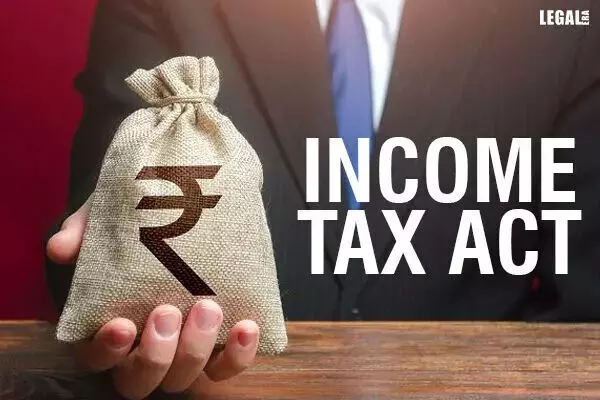- Home
- News
- Articles+
- Aerospace
- AI
- Agriculture
- Alternate Dispute Resolution
- Arbitration & Mediation
- Banking and Finance
- Bankruptcy
- Book Review
- Bribery & Corruption
- Commercial Litigation
- Competition Law
- Conference Reports
- Consumer Products
- Contract
- Corporate Governance
- Corporate Law
- Covid-19
- Cryptocurrency
- Cybersecurity
- Data Protection
- Defence
- Digital Economy
- E-commerce
- Employment Law
- Energy and Natural Resources
- Entertainment and Sports Law
- Environmental Law
- ESG
- FDI
- Food and Beverage
- Gaming
- Health Care
- IBC Diaries
- In Focus
- Inclusion & Diversity
- Insurance Law
- Intellectual Property
- International Law
- IP & Tech Era
- Know the Law
- Labour Laws
- Law & Policy and Regulation
- Litigation
- Litigation Funding
- Manufacturing
- Mergers & Acquisitions
- NFTs
- Privacy
- Private Equity
- Project Finance
- Real Estate
- Risk and Compliance
- Student Corner
- Take On Board
- Tax
- Technology Media and Telecom
- Tributes
- Viewpoint
- Zoom In
- Law Firms
- In-House
- Rankings
- E-Magazine
- Legal Era TV
- Events
- News
- Articles
- Aerospace
- AI
- Agriculture
- Alternate Dispute Resolution
- Arbitration & Mediation
- Banking and Finance
- Bankruptcy
- Book Review
- Bribery & Corruption
- Commercial Litigation
- Competition Law
- Conference Reports
- Consumer Products
- Contract
- Corporate Governance
- Corporate Law
- Covid-19
- Cryptocurrency
- Cybersecurity
- Data Protection
- Defence
- Digital Economy
- E-commerce
- Employment Law
- Energy and Natural Resources
- Entertainment and Sports Law
- Environmental Law
- ESG
- FDI
- Food and Beverage
- Gaming
- Health Care
- IBC Diaries
- In Focus
- Inclusion & Diversity
- Insurance Law
- Intellectual Property
- International Law
- IP & Tech Era
- Know the Law
- Labour Laws
- Law & Policy and Regulation
- Litigation
- Litigation Funding
- Manufacturing
- Mergers & Acquisitions
- NFTs
- Privacy
- Private Equity
- Project Finance
- Real Estate
- Risk and Compliance
- Student Corner
- Take On Board
- Tax
- Technology Media and Telecom
- Tributes
- Viewpoint
- Zoom In
- Law Firms
- In-House
- Rankings
- E-Magazine
- Legal Era TV
- Events
ITAT Delhi: Non-Resident Share Premium Not Governed by Section 56(2) (viib) of Income Tax Act

ITAT Delhi: Non-Resident Share Premium Not Governed by Section 56(2) (viib) of Income Tax Act
In a recent verdict, the Delhi Bench of the Income Tax Appellate Tribunal (ITAT) has held that the penalty levied under Section 271(1)(c) of the Income Tax Act lacked merit, given that the stipulations outlined in Section 56(2) (viib) did not pertain to the share premium received from a non-resident individual.
The conflict emerged due to the Revenue's assertion that the Commissioner of Income Tax-Appeals (CIT-A) erred in nullifying the penalty imposed under Section 271(1)(c) of the Act. The crux of the dispute originated from the claim that an individual named Vivek Choudhary purportedly affirmed during the assessment proceedings that he had resident status in the fiscal year 2014-15, coinciding with the issuance of shares.
The Bench focused on the CIT-A's ruling to remove the penalty. This penalty had been enforced based on the extent of the share premium received by the assessee from a non-resident source. The CIT-A's rationale for this removal lay in the fact that the provisions outlined in Section 56(2) (viib) did not extend to non-resident individuals, resulting in the penalty's cancellation.
The ITAT Bench, comprising Shamim Yahya (Accountant) and Yogesh Kumar US (Judicial), acknowledged the Department's contention that Vivek Chaudhri had reportedly affirmed his resident status before the AO. Despite the absence of corroborative evidence in both the AO's and the CIT-A's rulings, the Bench acknowledged the necessity to consider this facet to uphold fairness and justice.
Subsequently, the Bench redirected the matter to the AO, with a directive to conduct a comprehensive review of the note-sheet containing Vivek Chaudhri's purported affirmation. The Bench emphasised that upon the completion of this scrutiny, the AO should issue a verdict in adherence to the legal provisions.



